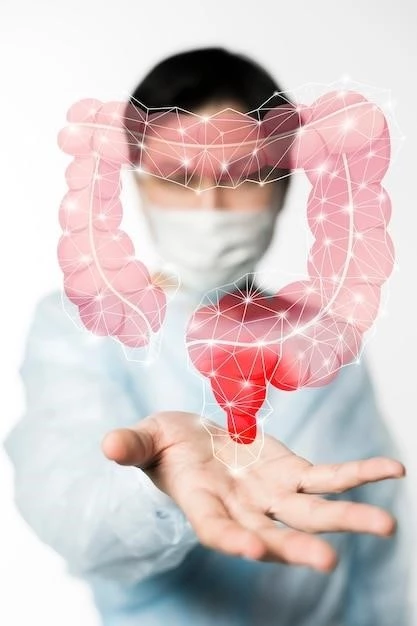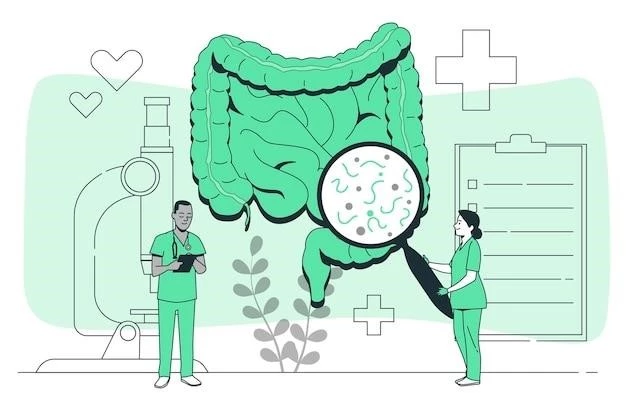Gastric Lymphoma ⎼ Treatment and Care Recommendations
When faced with the diagnosis of gastric lymphoma, it’s crucial to understand the treatment options and care recommendations available. This article aims to provide guidance on navigating through chemotherapy, radiation therapy, immunotherapy, surgical interventions, and post-treatment care under the oversight of an oncologist.
Understanding Gastric Lymphoma
Gastric lymphoma is a type of cancer that originates in the lymphatic tissue of the stomach. It is a rare form of gastrointestinal malignancy, but early detection and proper management are essential for successful treatment. Symptoms may include abdominal pain, bloating, nausea, vomiting, weight loss, and blood in the stool.
Diagnostic procedures such as endoscopy, biopsy, imaging tests, and molecular testing are crucial in confirming the presence of gastric lymphoma and determining its specific subtype. Once diagnosed, it is important to consult with a specialized oncologist experienced in treating lymphomas to discuss the most appropriate treatment plan.
Understanding the stage and subtype of gastric lymphoma is essential in determining the best course of action. Treatment options may include chemotherapy, radiation therapy, immunotherapy, and surgical interventions, either alone or in combination. The goals of treatment are to eradicate cancer cells, prevent recurrence, and preserve the patient’s quality of life.
Patients should actively participate in their treatment decisions, ask questions, and seek support from healthcare professionals, family, and support groups. Adhering to the treatment plan outlined by the oncologist and attending regular follow-up appointments for monitoring and evaluation are crucial steps in managing gastric lymphoma effectively.
Treatment Options
When it comes to treating gastric lymphoma, there are several approaches depending on the stage, subtype, and overall health of the patient. The main treatment modalities include chemotherapy, radiation therapy, immunotherapy, and surgery. These options can be used individually or combined to create a comprehensive treatment plan.
Chemotherapy⁚ Chemotherapy uses powerful drugs to destroy cancer cells. It can be administered orally or intravenously and is often used as a primary treatment for gastric lymphoma. Common side effects include nausea, hair loss, fatigue, and increased risk of infections.
Radiation Therapy⁚ Radiation therapy targets cancer cells with high-energy beams to kill or shrink tumors. It is typically used in combination with chemotherapy or as a standalone treatment for localized gastric lymphoma. Side effects may include skin irritation, fatigue, and digestive issues.
Immunotherapy⁚ Immunotherapy works by enhancing the body’s immune system to identify and attack cancer cells. This treatment option is still being studied for gastric lymphoma but shows promise in certain cases. Side effects can include flu-like symptoms and immune-related reactions.
Surgery⁚ Surgical interventions may be necessary to remove a tumor or part of the stomach affected by lymphoma. Surgery is often combined with other treatment modalities to achieve the best outcomes. Recovery from surgery may involve dietary adjustments and physical rehabilitation.
It is important for patients to discuss all available treatment options with their oncologist to understand the potential benefits, risks, and expected outcomes. Each treatment approach may have different impacts on the body and quality of life, so personalized care plans tailored to the individual’s needs are essential for managing gastric lymphoma effectively.
Role of an Oncologist
When facing gastric lymphoma, the role of an oncologist is pivotal in guiding patients through the complexities of diagnosis, treatment, and recovery. An oncologist is a specialized physician trained in the management of cancer, including lymphomas like gastric lymphoma.
Initially, the oncologist plays a crucial role in confirming the diagnosis of gastric lymphoma through various tests and evaluations. Based on the subtype, stage, and individual health factors, the oncologist develops a personalized treatment plan that may include chemotherapy, radiation therapy, immunotherapy, surgery, or a combination of these modalities.
Throughout the treatment journey, the oncologist monitors the patient’s response to therapy, manages side effects, and adjusts the treatment plan as needed to optimize outcomes. They act as a central point of coordination among the healthcare team, providing guidance and support to ensure that the patient receives comprehensive care.
Additionally, the oncologist educates patients about their condition, treatment options, and potential outcomes, empowering them to make informed decisions about their care. They address any concerns or questions that arise, offering reassurance and emotional support during a challenging time.
Post-treatment, the oncologist continues to monitor the patient through regular follow-up appointments, imaging tests, and blood work to check for recurrence or complications. They play a vital role in survivorship care, helping patients transition back to everyday life while ensuring continued vigilance against potential issues.
Choosing an experienced oncologist who specializes in treating lymphomas like gastric lymphoma can significantly impact the patient’s journey and overall prognosis. Establishing a trusting relationship with the oncologist and actively engaging in care decisions can lead to the best possible outcomes in the management of gastric lymphoma.
Chemotherapy for Gastric Lymphoma
Chemotherapy is a cornerstone in the treatment of gastric lymphoma, utilizing powerful medications to target and destroy cancer cells in the stomach. The specific drugs, dosages, and treatment regimens will vary based on the subtype and stage of the lymphoma, as well as individual patient factors.
Prior to initiating chemotherapy, your oncologist will conduct a thorough evaluation to determine the most effective drug combinations for your condition. Chemotherapy can be administered orally or intravenously, with the schedule and duration of treatment carefully planned to maximize effectiveness while minimizing side effects.
Common side effects of chemotherapy for gastric lymphoma include nausea, vomiting, hair loss, fatigue, and increased susceptibility to infections. Your oncologist will closely monitor your response to treatment and provide supportive care to manage these side effects, ensuring your comfort and well-being throughout the process.
It is important to adhere to the prescribed chemotherapy schedule and follow any recommendations provided by your oncologist. Notify your healthcare team immediately if you experience severe side effects or unexpected symptoms during treatment, as timely intervention can help maintain the continuity and success of your therapy.
Chemotherapy plays a crucial role in shrinking tumors, controlling cancer growth, and improving overall survival rates for patients with gastric lymphoma. By working closely with your oncologist and care team, you can navigate the challenges of chemotherapy while focusing on your journey to recovery and long-term well-being.
Radiation Therapy and Immunotherapy
Radiation therapy and immunotherapy are valuable treatment options to consider in the management of gastric lymphoma, either as standalone therapies or in combination with other modalities. These approaches target cancer cells in the stomach while minimizing harm to healthy tissues.
Radiation Therapy⁚ Radiation therapy utilizes high-energy beams to destroy cancer cells and shrink tumors in the stomach. It is often employed following chemotherapy or as a localized treatment for specific areas affected by lymphoma. Side effects may include fatigue, skin irritation, and digestive issues.
Immunotherapy⁚ Immunotherapy works by harnessing the body’s immune system to recognize and attack cancer cells. While still under investigation for gastric lymphoma, immunotherapy shows promise in enhancing treatment outcomes in certain cases. Side effects can include flu-like symptoms and immune-related reactions.
Your oncologist will determine the appropriateness of radiation therapy and immunotherapy based on the subtype, stage, and your overall health condition. These treatments may be recommended to enhance the effectiveness of chemotherapy, provide localized tumor control, or boost the immune response against cancer cells.
Discuss the potential benefits and risks of radiation therapy and immunotherapy with your healthcare team to make informed decisions about your treatment plan. Stay engaged throughout the process, communicate openly about any concerns or side effects, and follow the guidance provided by your oncologist to optimize the outcomes of these therapies in managing gastric lymphoma.
Surgical Interventions
Surgical interventions play a vital role in the treatment of gastric lymphoma, especially in cases where localized tumor removal or stomach resection is necessary. Surgery may be recommended by your oncologist as a standalone treatment or in combination with chemotherapy, radiation therapy, or immunotherapy to achieve optimal outcomes.
Depending on the extent of the lymphoma’s involvement in the stomach, surgical procedures may involve removing part of the stomach (partial gastrectomy) or the entire stomach (total gastrectomy). Lymph node dissection may also be performed to assess if the cancer has spread to nearby lymph nodes.
Prior to surgery, your healthcare team will provide detailed instructions on pre-operative preparations, such as dietary restrictions, medication adjustments, and physical activity recommendations. It is important to follow these guidelines to ensure a successful surgical outcome and promote optimal healing post-operation.
After surgery, you will undergo a recovery period during which your oncologist and surgical team will closely monitor your progress and manage any potential complications. Follow-up appointments and imaging tests will be scheduled to track your recovery and assess the effectiveness of the surgical intervention.
Adhering to the post-operative care plan, including dietary modifications, activity restrictions, and medications, is essential for a smooth recovery and long-term wellness. Your oncologist will guide you through this process and provide support every step of the way to facilitate your journey towards healing and improved health following surgical interventions for gastric lymphoma.
Post-Treatment Care and Monitoring
After completing treatment for gastric lymphoma, post-treatment care and monitoring are essential to ensure long-term health and well-being. Your oncologist will outline a personalized follow-up plan tailored to your specific needs and treatment history to monitor for any signs of recurrence or late effects of therapy.
Regular follow-up appointments with your oncologist will be scheduled to assess your recovery progress, monitor for any recurrence of lymphoma, and address any lingering side effects from treatment. During these visits, blood tests, imaging scans, and physical examinations may be conducted to evaluate your overall health.
It is important to attend all scheduled follow-up appointments and promptly report any new symptoms or concerns to your healthcare team. Early detection of any recurrent lymphoma or treatment-related issues enables timely intervention and improved outcomes in managing your condition.
In addition to medical monitoring, post-treatment care may involve lifestyle adjustments, including maintaining a healthy diet, engaging in regular physical activity, managing stress, and avoiding tobacco and excessive alcohol consumption. These lifestyle factors can positively impact your overall health and reduce the risk of lymphoma recurrence.
Emotional support and counseling services may also be beneficial during the post-treatment phase, as adjusting to life after gastric lymphoma treatment can bring about unique challenges. Connecting with support groups, mental health professionals, or trusted loved ones can help you navigate this period of transition and promote emotional well-being.
By actively participating in post-treatment care, staying vigilant about your health, and partnering with your healthcare team, you can enhance your quality of life and reduce the likelihood of lymphoma recurrence. Remember, your oncologist is there to support you every step of the way on your journey to recovery and long-term wellness.

